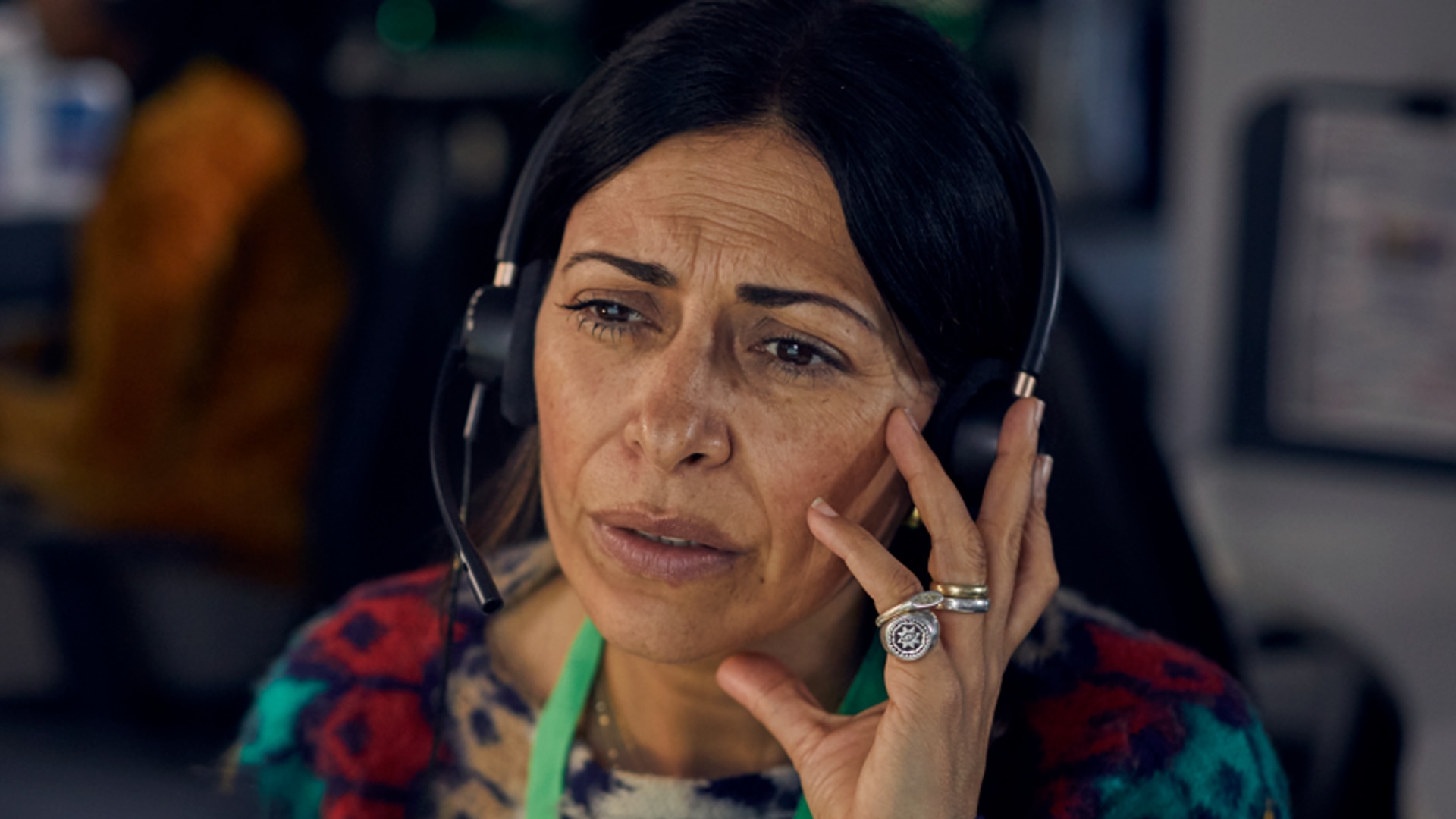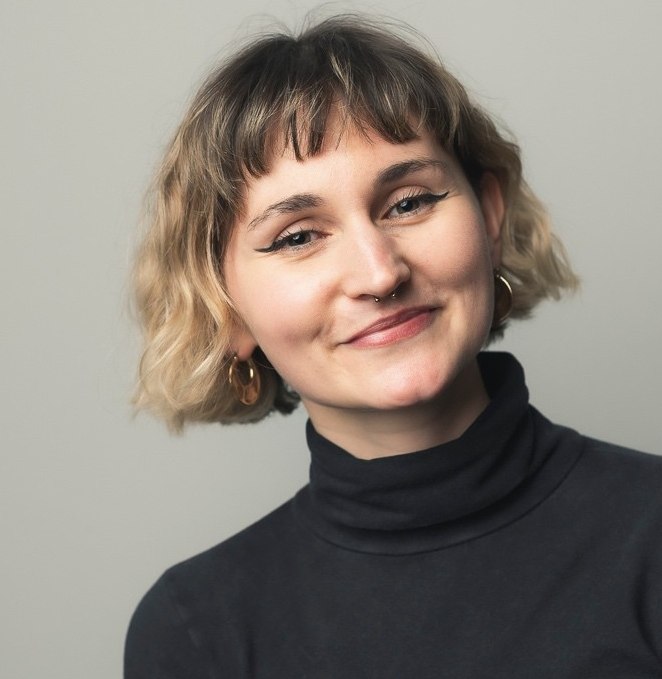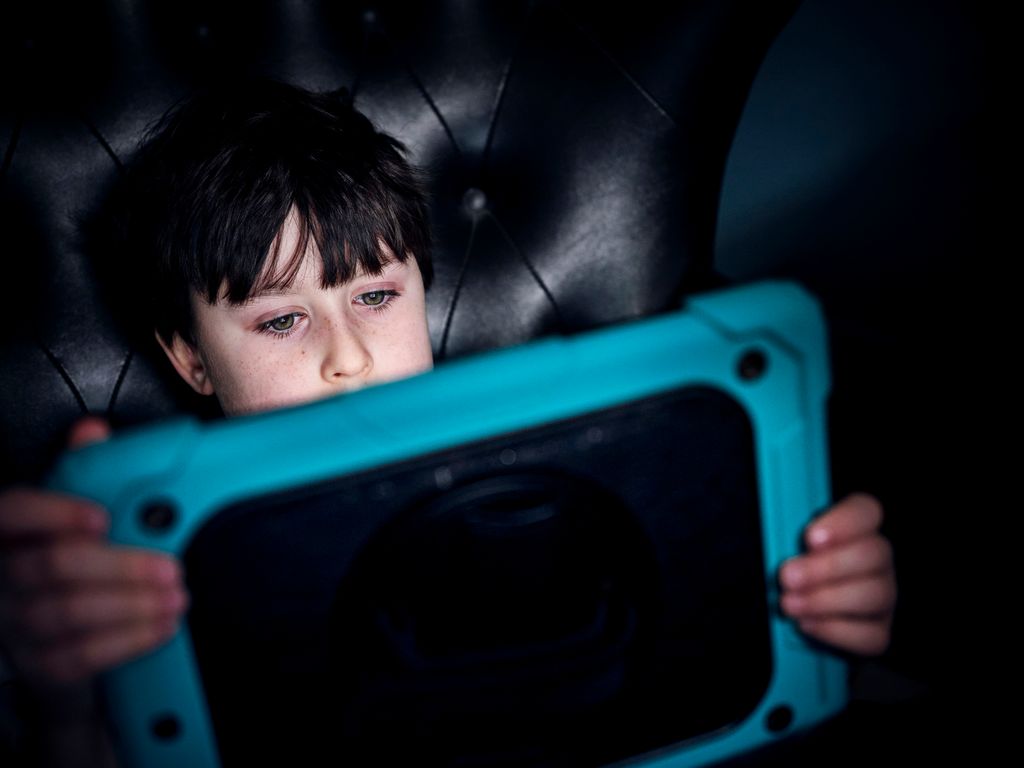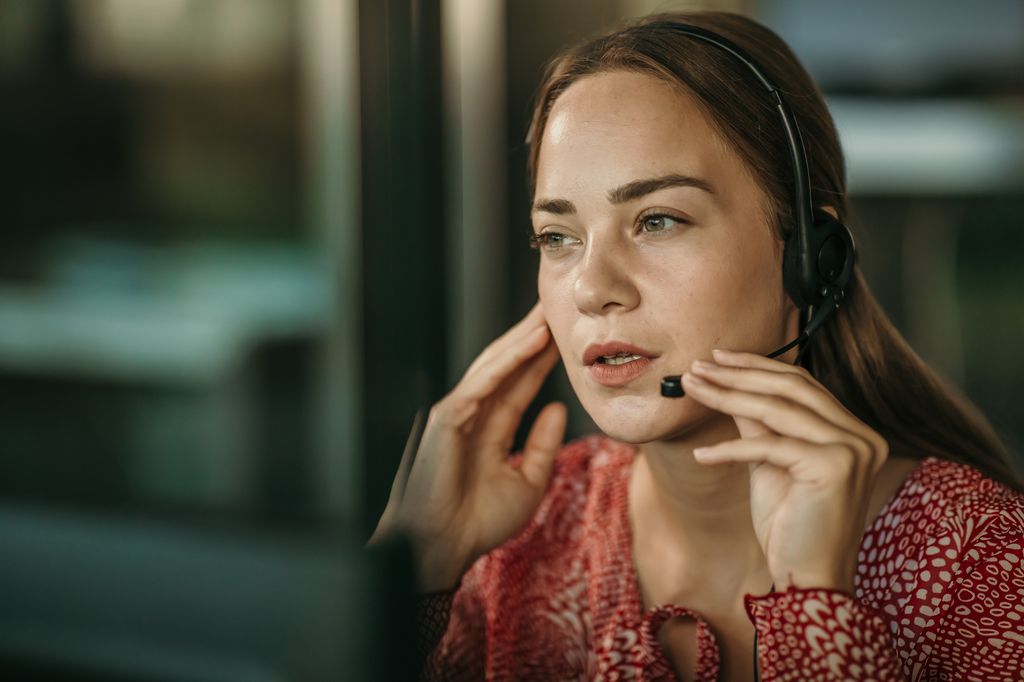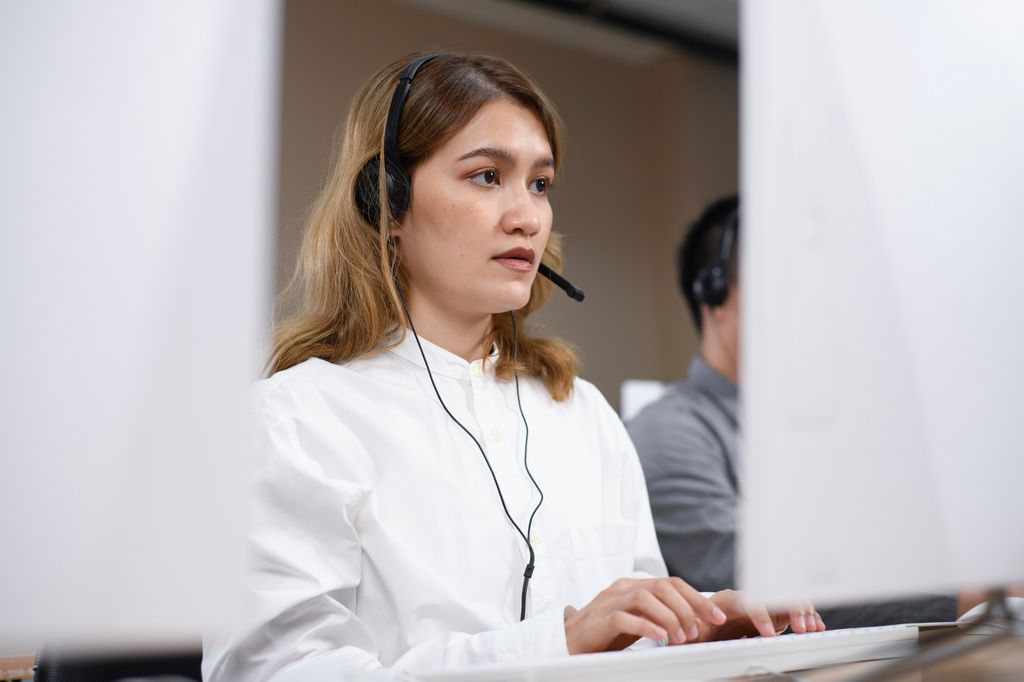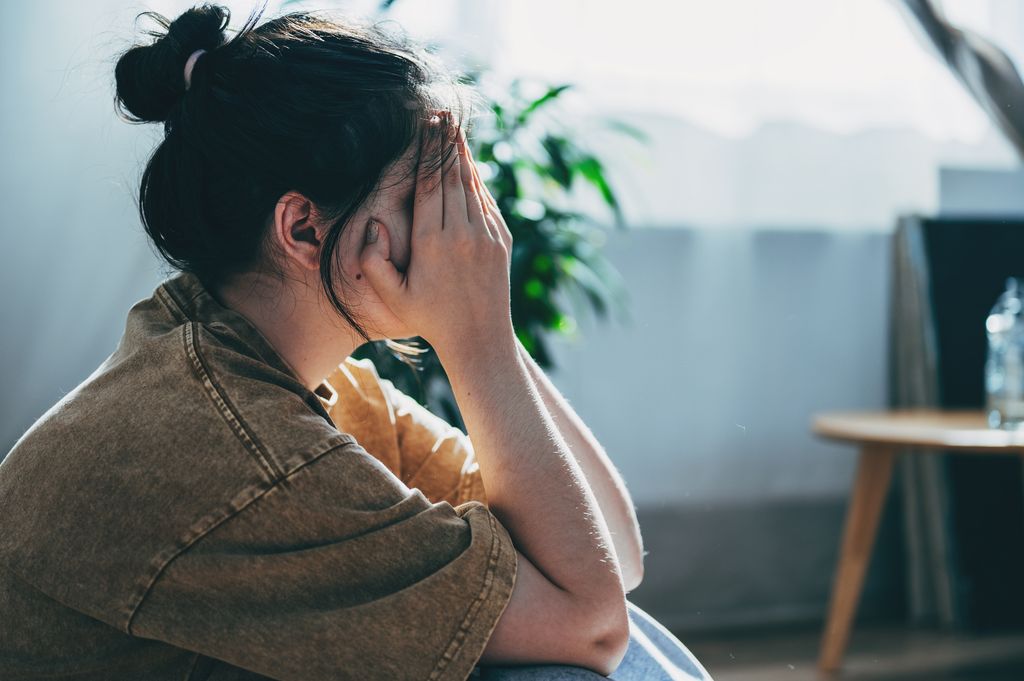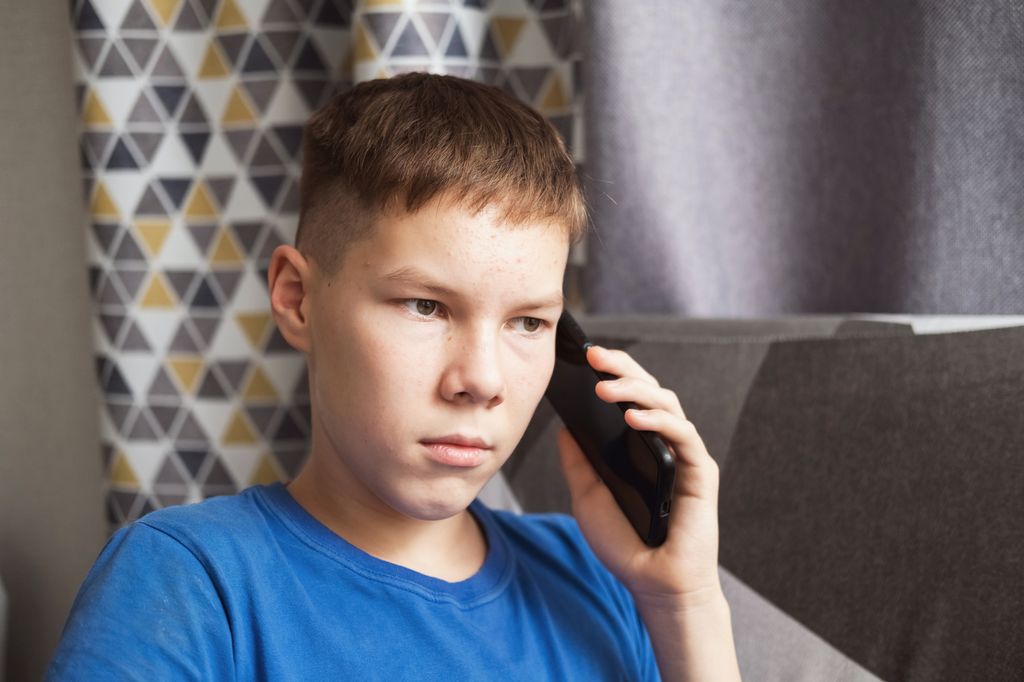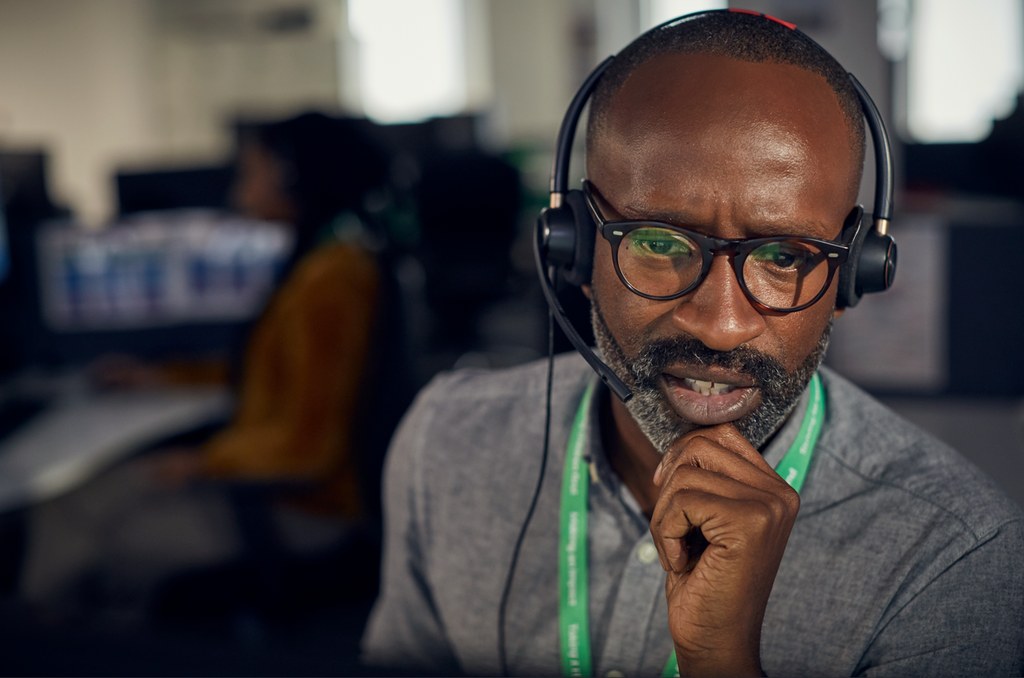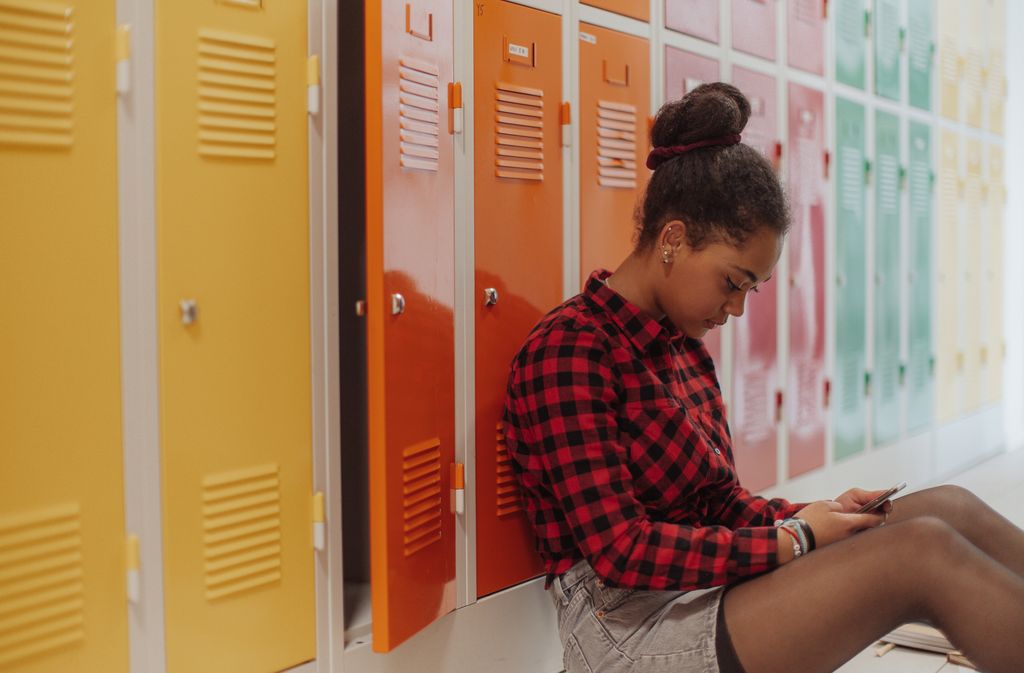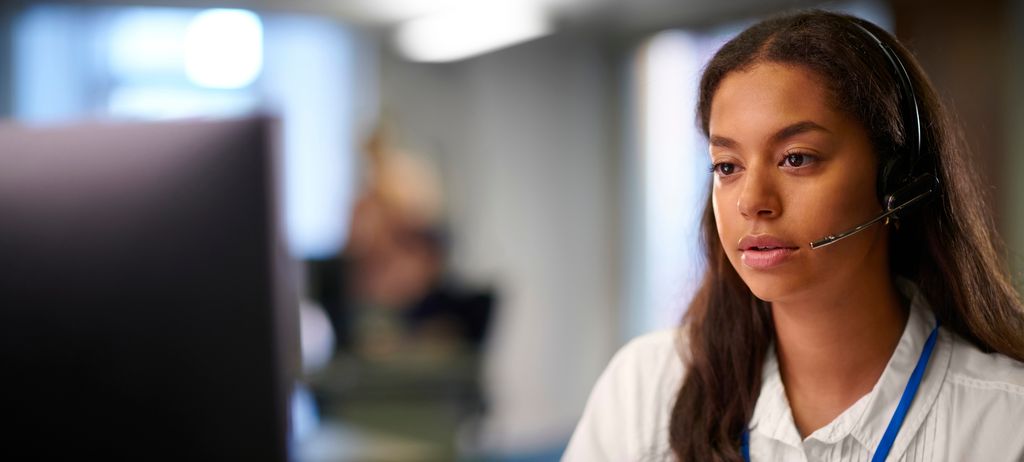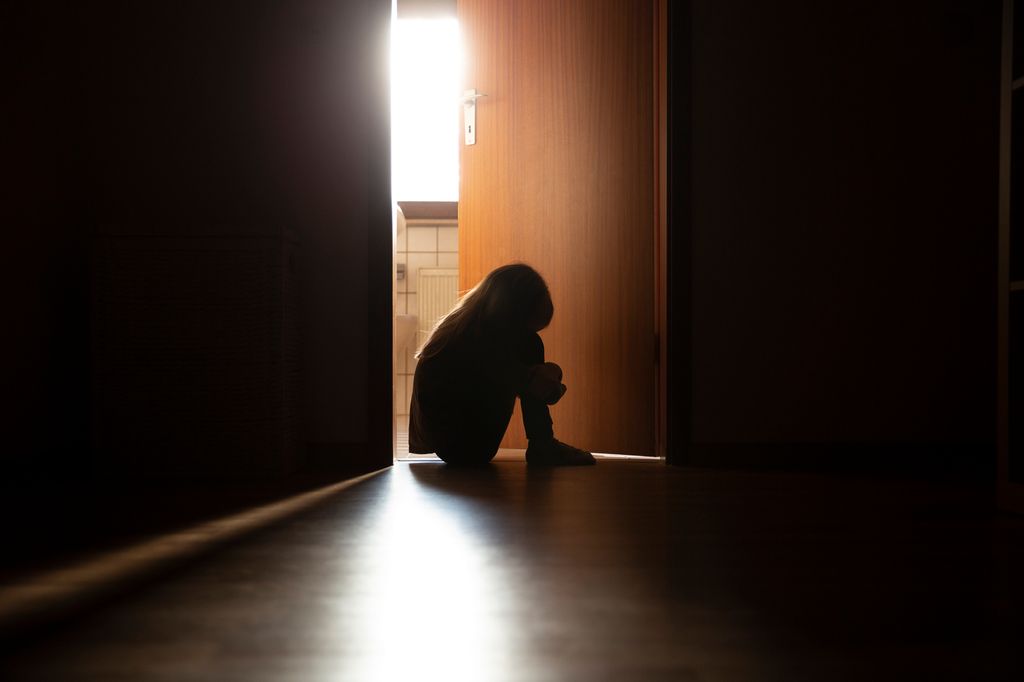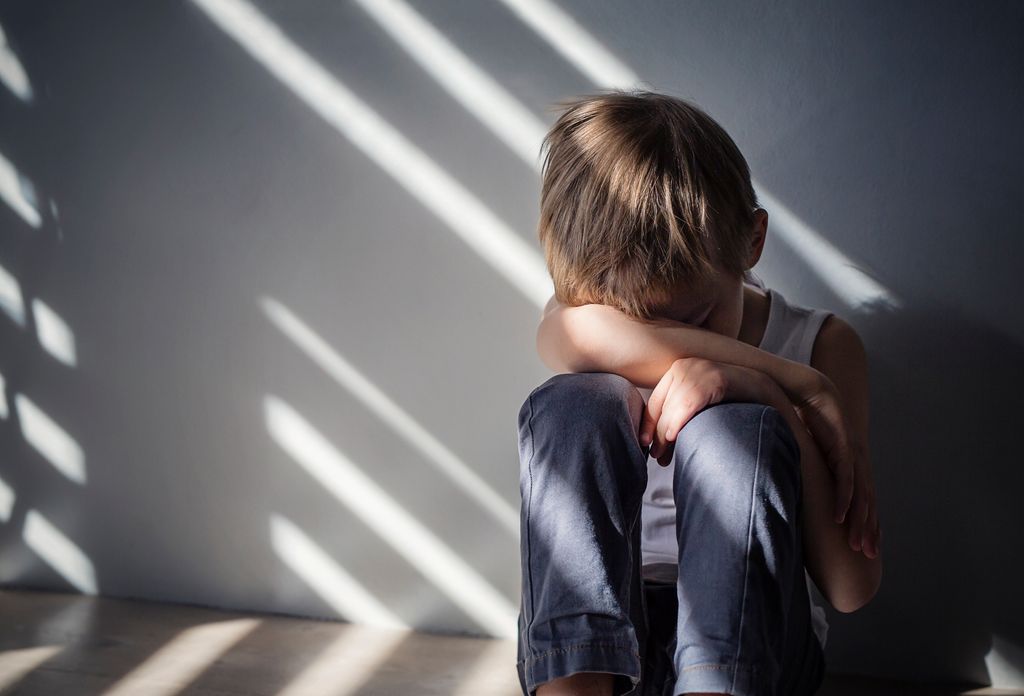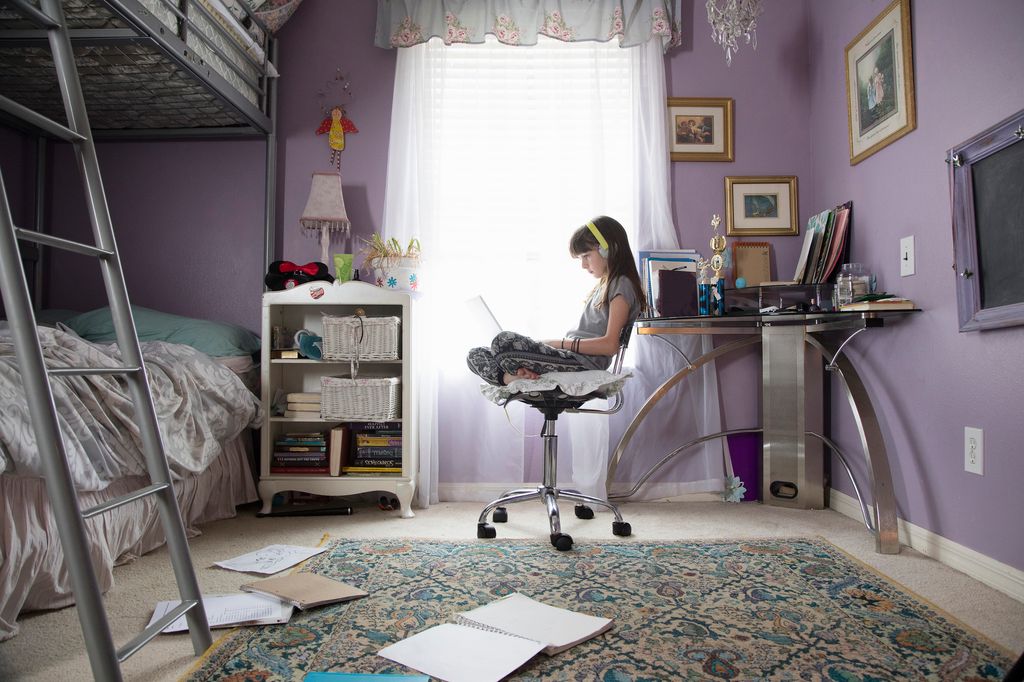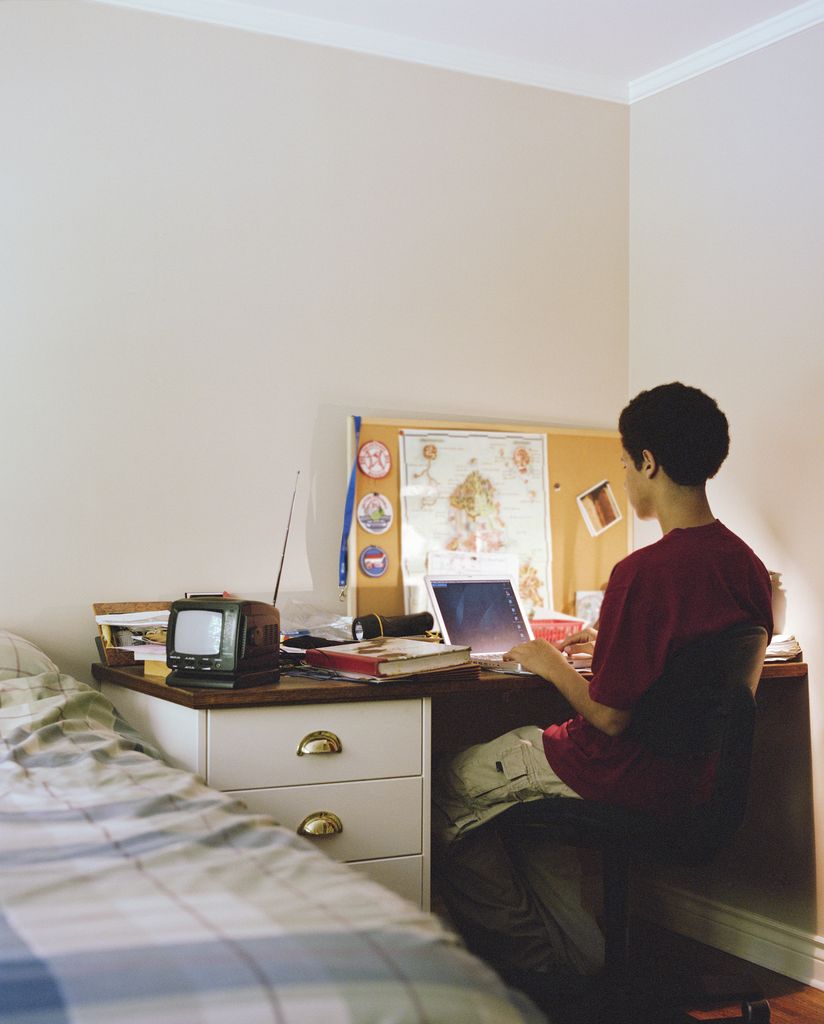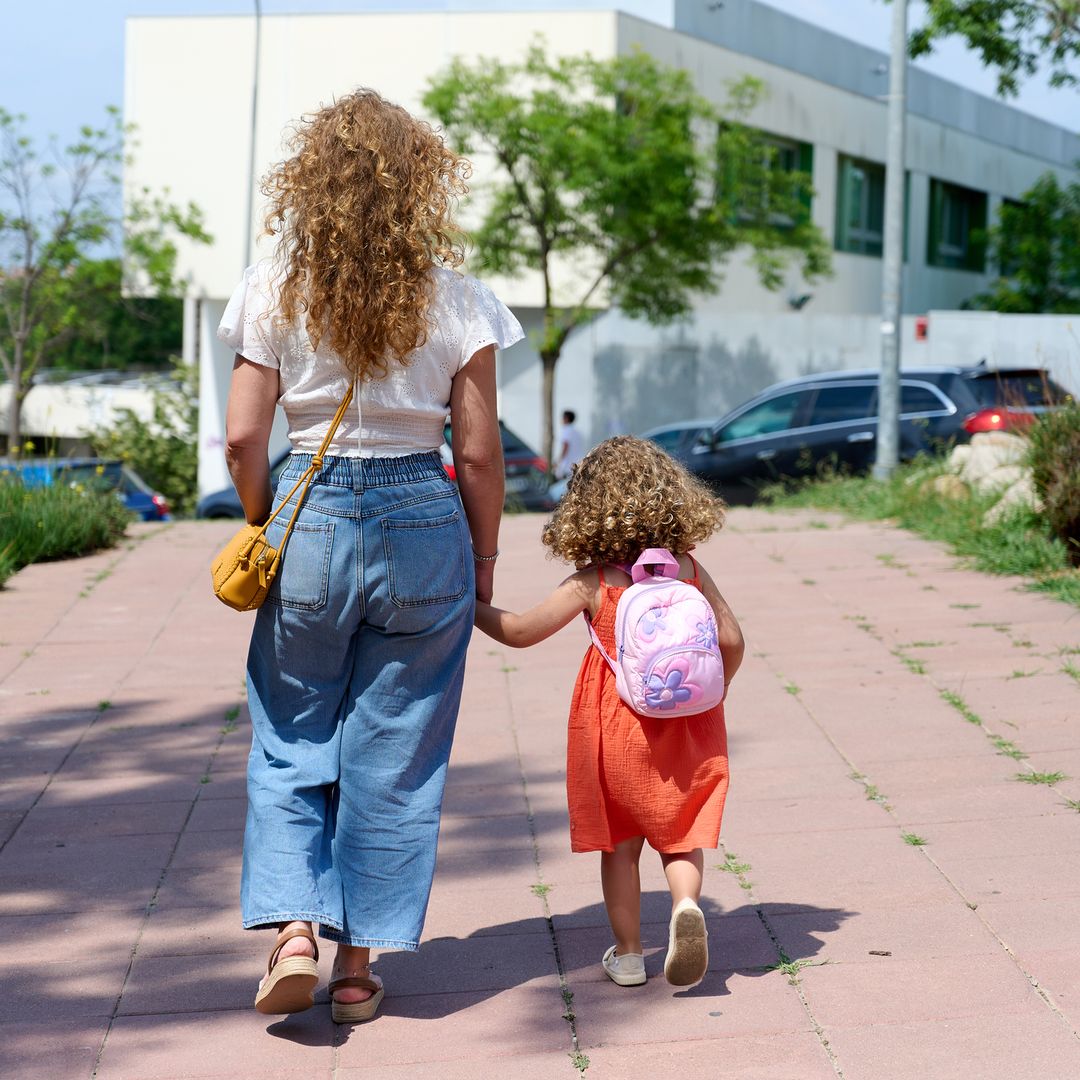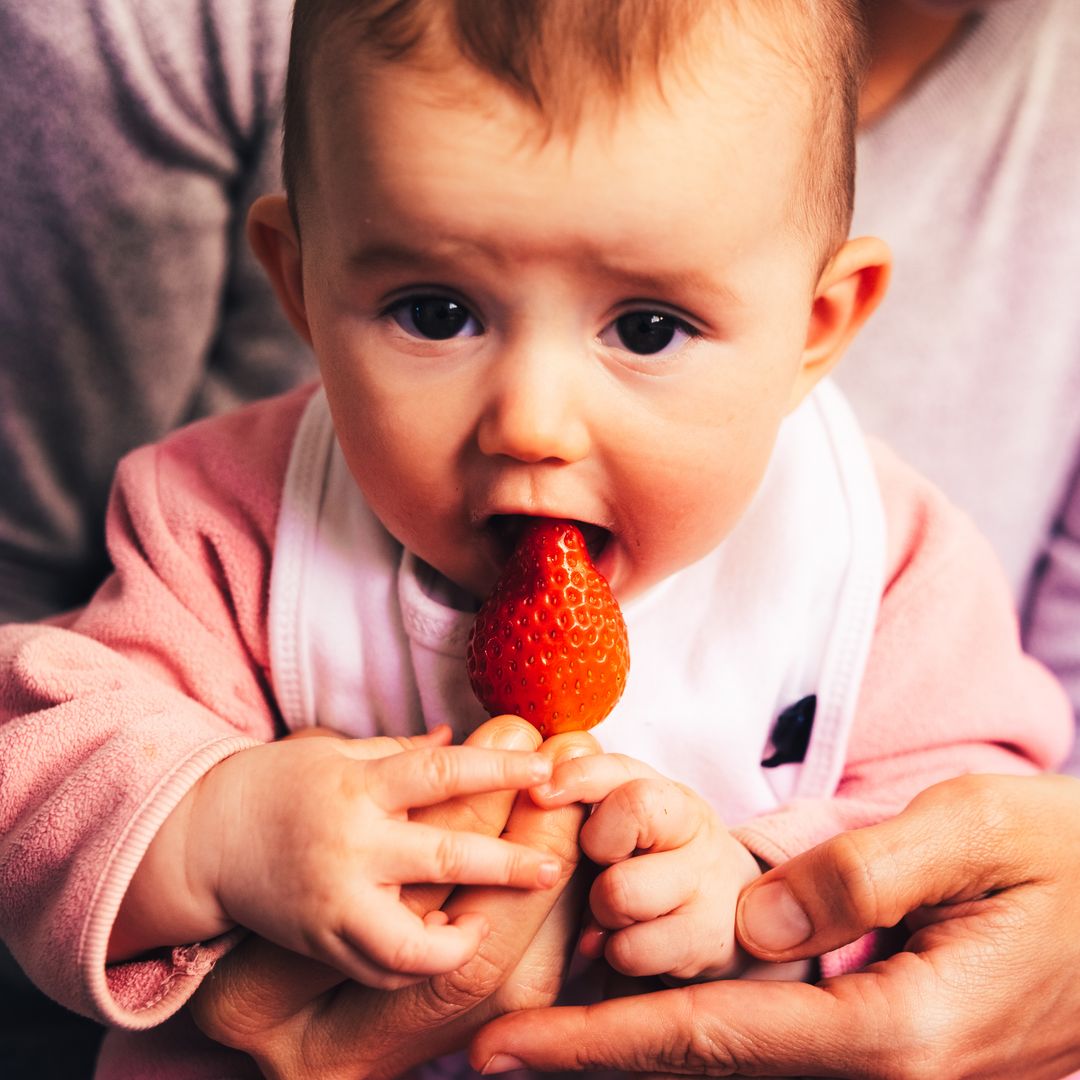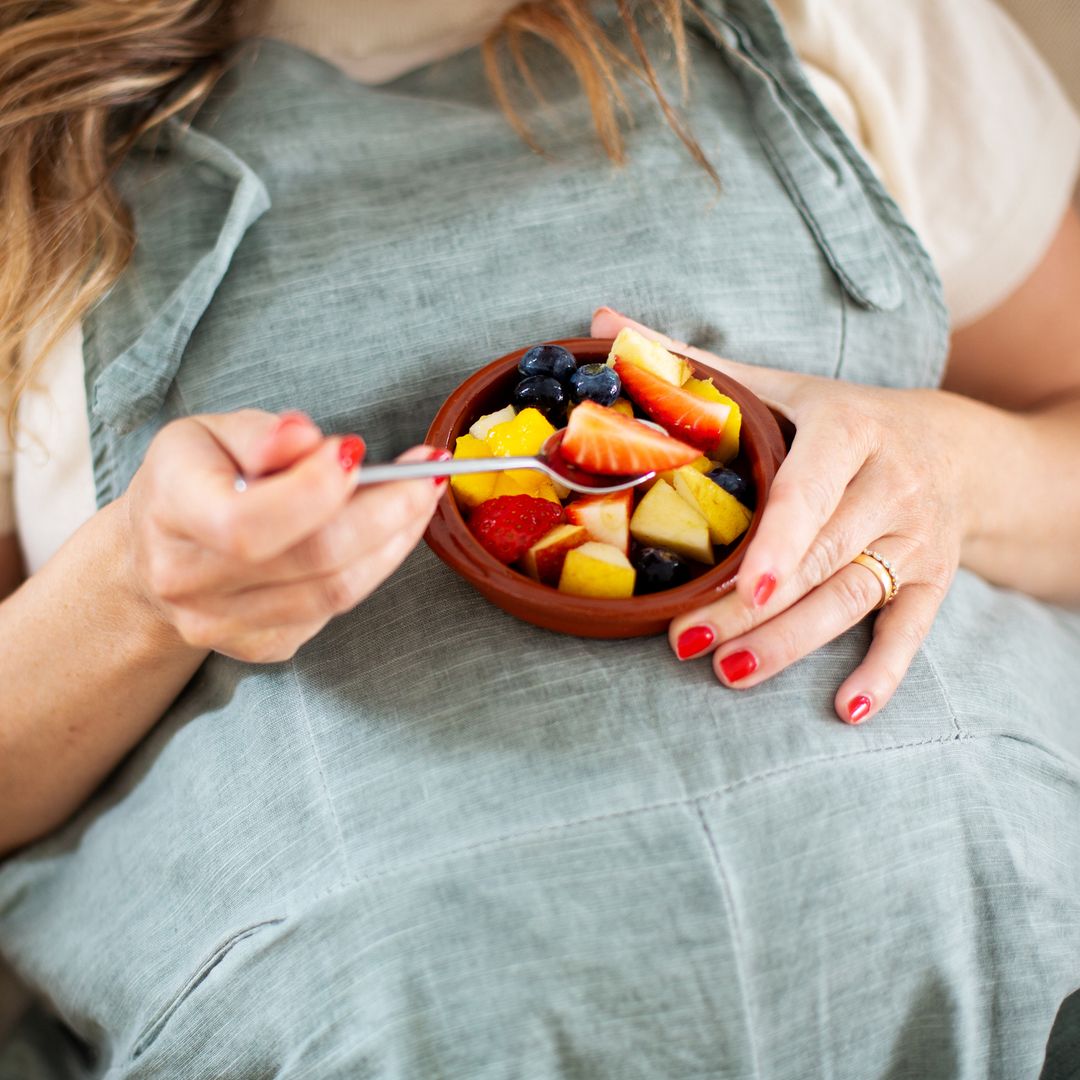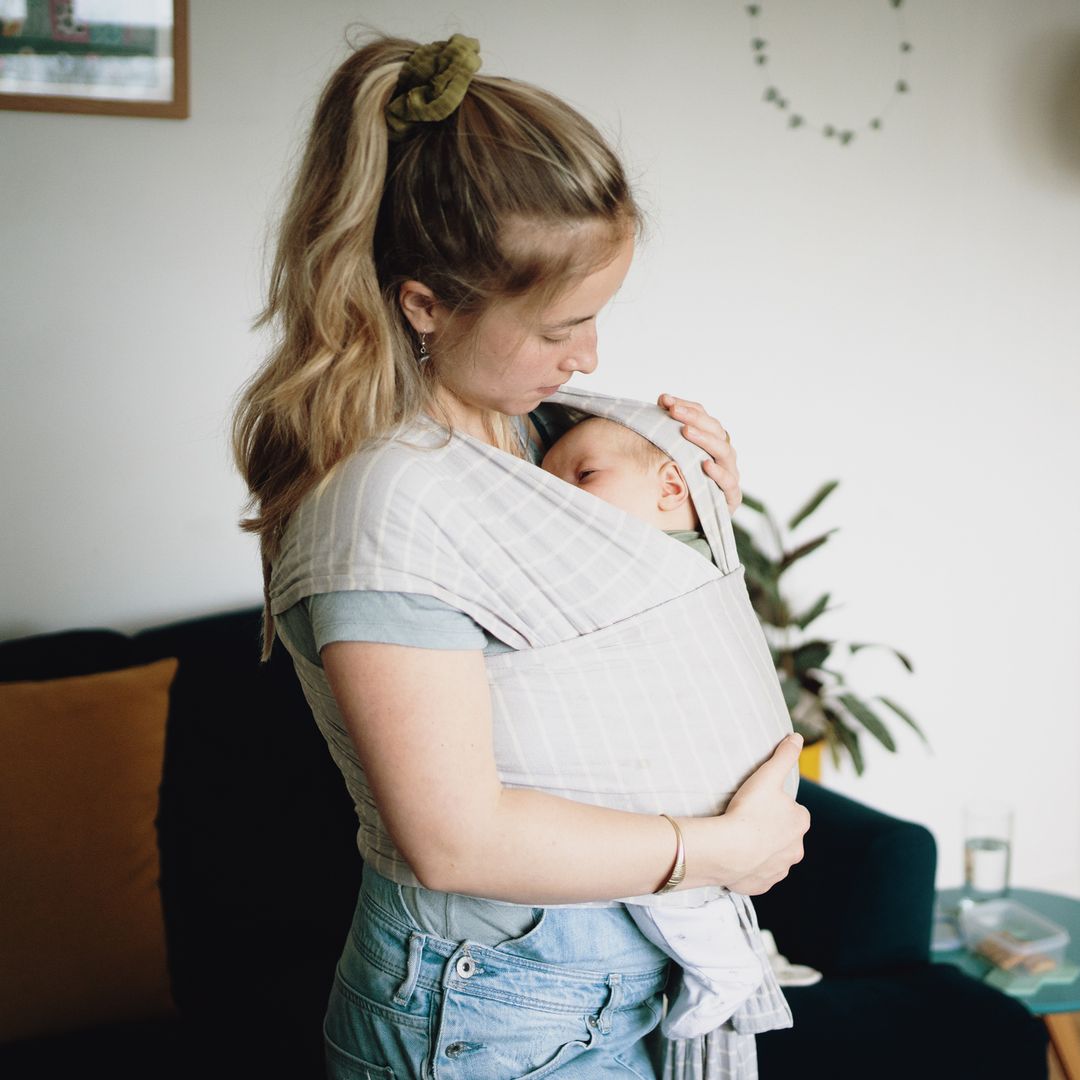Trigger warning - this story contains reference to suicide and abuse
Childline is a service many of us have heard of; one we hope children will never have to use, and yet volunteers like Olivia Fuller are busier than ever.
Olivia works as a New Partnerships Manager at the NSPCC, but in her free time puts in one evening shift a week as a Childline volunteer. Childline is a free-to-use service run by the children's charity which provides a helpline, online chat and email function for young people who need someone to talk to. It is open 24 hours a day, seven days a week.
Having just earned her certificate for 140 hours of service, Olivia sat down with HELLO! to share what a shift looks like, shedding light on the issues facing young people, especially when it comes to their use of online platforms.
Where it all began
Volunteering has always been a passion of Olivia's. Prior to her work at the NSPCC, she was a rape crisis helpline volunteer and worked on nighttime outreach to support street-based sex workers in Leeds. Olivia had also previously given her time to work at a foodbank in Hackney.
When she took on a role at the NSPCC she says it made perfect sense to look into becoming a Childline volunteer and she hasn't looked back. "No matter what I'm doing, I will be a Childline volunteer because I absolutely love it," she tells us.
Training to become a volunteer
It isn't as simple as having a passion for helping others or a desire to support vulnerable young people. Olivia explains that the application process starts with a DBS (Disclosure and Barring Service) check, followed by an online application and a thorough interview. The NSPCC wants to know about your previous experience working with young people - if any, as previous experience is not always required - and possess the values to take on the role.
Once accepted, Olivia waited to be entered into the next cohort of volunteers before embarking upon what she admits was a challenging training programme. "The training is very rigorous and I know just how necessary it is now. You're taking such serious calls on a regular basis," Olivia says.
She explains that she would log on to the online training once a week for four hours after work. The training equips volunteers with Childline's universal model of handling different calls. The training involves role-play between candidates to practice the online chat and phone call method of receiving contact from young people who want to talk.
"That is really challenging because it comes with a lot of feedback which can sometimes be a bit disappointing but you understand in the long term why they're being so thorough," Olivia says, explaining that the calls she was being prepared for ranged from a 'need to talk' through to a crisis situation.
Olivia's first shift
After weeks of rigorous training around her full-time job, Olivia was ready to take on her first shift. "In the training, you have two shadowing shifts where you will sit in and listen to calls with an experienced volunteer and watch as they do their shift, which is really helpful," Olivia explains.
"You also have two mentored shifts where you're actively volunteering but you have a trained mentor with you who will support you and will give feedback. You've got to progress through those shifts before you go on to be a counsellor."
Olivia has no qualms about being candid about how she was feeling in those first moments of taking real calls for the first time. "Those two mentored shifts were the most terrifying of my life," she says. "I was just so nervous but they make you realise how much support there is in the room. If there is any element of risk, you put your hand up and one of the many supervisors on shift will come over and support you."
The volunteer explains how this works in what she says are, unfortunately, a frequent type of calls made by young people. She explains: "If you're on a call and a young person has just said, 'I want to end it all now', you put your hand up for the supervisor and you will be on the call saying: 'Can I just clarify that you’re saying you want to end it all, can you tell me more about what that means for you?' so you're saying it out loud.
"The supervisor has come over and heard you, they put their headphones on and they listen and then they can tell you what to say."
Why do young people call Childline?
Every shift will look different, especially as Childline can take calls from young people up to their 19th birthday. However, there are some issues that come up time and again. "Really sadly, many contacts are from young people wanting to take their lives, whether that is a serious statement or not, that is what they are coming through and saying," Olivia admits.
"One time I explored it further and the young person was playing hide and seek with their brother and was losing but they said they wanted to kill themselves. But then you get the other end of the scale where they have got a plan and there's lots of difficult things going on in their life."
She continues: "It's not all child abuse. I had a young person ring the other day - they were terrified because they had a bug in their room and they didn't know what to do."
Olivia admits that calls like this break up the more difficult contacts which, in her experience, have involved children as young as six years old.
Equipping young people to handle online dangers
HELLO! has recently launched the Safer Spaces Hub, an online safety information centre for parents, carers, teens, and children. We were interested to hear how online safety plays into Olivia's role.
Two instances come to mind for the volunteer. "I had a young person call recently and they were saying how they were going through YouTube shorts and they saw someone getting hurt," Olivia explains.
"We talked it through and they [said] they didn't want to see it and it just came up. It shocked them and they were really scared that that was going to happen to them and their family."
Olivia helped the young person make a plan to tell their parents. She says that they came up with the idea to ask them to put more parental controls on YouTube to protect them from seeing more content which wasn't appropriate for their age. "That was all their idea," Olivia says.
The volunteer was also reminded of the dangers young people face when navigating apps with a photo messaging function. Olivia was speaking to a teenager who threw in towards the end of their call that they were sending images of themselves to older men on Snapchat.
"I had to get a bit of support from the supervisor and we had to explore their safety behind that," Olivia remembers. "I said something like, 'Have you considered your safety in that situation? What does safety look like to you? What do you think is being done with those images?'."
Instances like this are a sobering reminder of the vital work Childline does to support vulnerable young people in navigating their use of online platforms.
Difficult contacts
Olivia is frank about the difficult contacts she has handled, and the impact it can have on her as a counsellor.
"I find it really hard when a young person gets stuck, when they are going round and round and nothing we can say seems to help," she admits. "I find those contacts really difficult because you can feel like you're getting stuck with them, you can feel like nothing you're saying is helping and you can definitely beat yourself up a bit afterwards."
She says in instances like this the support of the supervisors is all the more vital, both in helping her navigate the call and also ensuring she knows she has done her best in handling it appropriately.
"You've been there for them, you've tried your absolute best, you've responded to everything they're saying, they know that and they know that's the consistent service they're going to get at Childline. If they come back, that's what they're going to get again," are the sorts of reassuring comments Olivia has received from her supervisors.
Olivia says she also finds it hard if she loses connection during a call with a high-risk young person when they have been communicating via the chat function as she is left not knowing if they have found safety. "My friend had one where someone said they were on the edge of a cliff and [they] screamed and hung up," Olivia recalls, emphasising the emotional impact this had on her fellow volunteer.
The NSPCC employee is sometimes reminded of the vital need for more volunteers by those calling for help. Olivia recalls having spoken to a young person who had taken several tablets after being bullied at school and who was being looked after by a parent struggling with their own mental health.
Olivia asked the young person if they had tried to call Childline before to talk about the bullying they were experiencing at school and the young person told her they had tried but hadn't been able to get through.
"That really hit me hard because as a fundraiser in my job, I'm always saying: 'We can't answer every call, we need your support to fund us to help us answer every call', and this was proof of that," Olivia says.
Childline offers the young person time to take a break from the serious subject matter they have been speaking about, a chance to reflect on what the Childline volunteer has said, and they are told they can call back at any time.
However, Olivia admits: "Not every single young person gets through to us because the wait times are too long, the volunteer numbers are still low from Covid so that's a bit of a hard hitter."
Handling a crisis
Olivia stresses that the paid staff supervisor holds the risk when making a decision about how to handle a crisis situation. HELLO! wanted to know if Olivia has ever had to call an ambulance in the event of a crisis call, but she explains that this isn’t a volunteer’s role but that of a staff member to assess if this is necessary and it isn't always Childline's first port of call.
"Where it is appropriate to do so we want to encourage young people to talk to us and to trust us, and to understand what the young person truly needs and to ensure they are heard." Olivia reveals.
"We listen to young people and try to empower them and support them to change the situation, either themselves or in a way that they feel comfortable with," she continues. "If there is abuse going on at home, we speak about if there is a trusted adult you can talk to and how would you feel about talking to social services."
She says there are a few exceptions to the rule where Childline will, as they put it, 'breach' - that is, breach the confidentiality of the caller if the supervisor and on-shift manager believe there is a threat to life or to others. "If we ever do breach confidentiality and get emergency services involved, we try to have the young person on board with that, so they retain as much control as possible" Olivia adds.
Safeguarding the mental health of volunteers
Childline knows that the nature of the calls volunteers handle can have an emotional impact on them. Olivia explains that they start every shift by going into a briefing room which is separate from the counselling room.
Volunteers will sit with the supervisors and be briefed on current affairs and pertinent matters impacting young people, but also have the opportunity to check in with each other, and find out how they are doing personally.
"It's lovely. We've got a really nice volunteer coordinator and he's decked it out so relaxingly and so calming. There is a book exchange, it's really sweet," says Olivia. "The space is very much like a drop in and then we're going into the counselling room so it's really nice to have that physical leaving behind. I find that really important."
Olivia ensures she takes a break, gets away from the laptop at some point in her shift and treats herself to something to eat from the plentiful snack cupboard.
The volunteers also allow time for a debrief at the end of a shift. "We go back into that little room and we go round and talk about how we're feeling so instead of 'What was the content of the calls?', we'll talk about how we feel," she says. "The counselling room is the young person's space, the debrief room is the volunteer space.
"That is always really important and they also have a number that volunteers can call after they have left shift if they want to chat through anything. The support is amazing."
The rewards
The role is certainly not without its rewards. Olivia reassures us that there are plenty of instances where she is told she has made a difference. "When a young person says: 'You've really helped me today thank you', that happens quite a lot which is really nice. When you've been building a rapport with them over the conversation and you get that little thing at the end it's so sweet," Olivia says.
DISCOVER: How to tell if your child is being bullied online and what to do
Guiding young people through finding a solution to their problems is also a fulfilling side of Olivia's role. "If they come to a conclusion themselves, that's my favourite thing," she says, "We don't give advice, we're just here to support them emotionally. Feeling that progress is so nice."
All children can speak to a trained counsellor over the phone on 0800 1111, via email or on a 121 chat on the Childline website.
Children can also visit the website to find more advice on any concerns or questions they may have, they can also use the service’s moderated message boards to get support from their peers. Adults with concerns about a child can contact the NSPCC Helpline by calling 0808 800 5000 or emailing help@NSPCC.org.uk.

